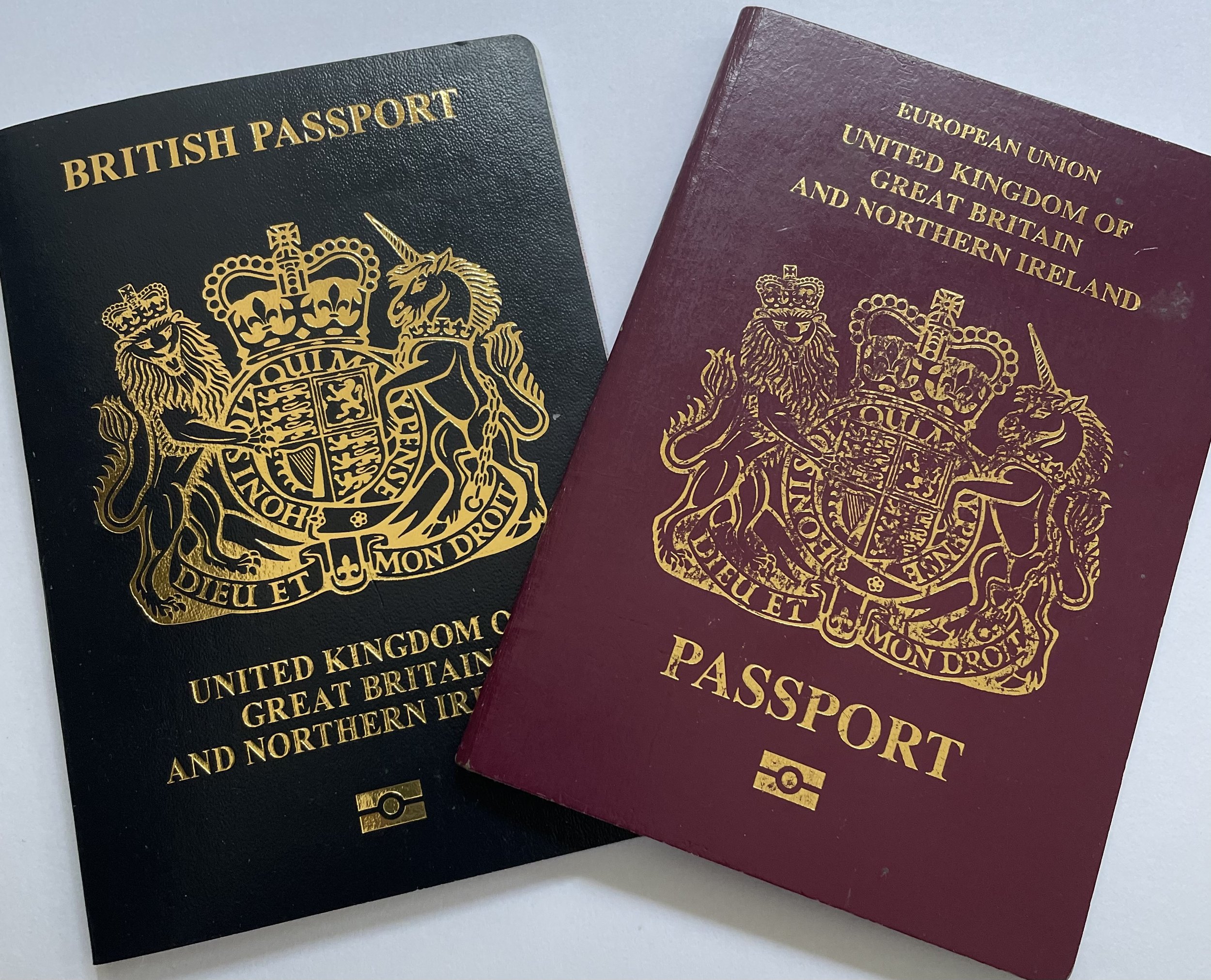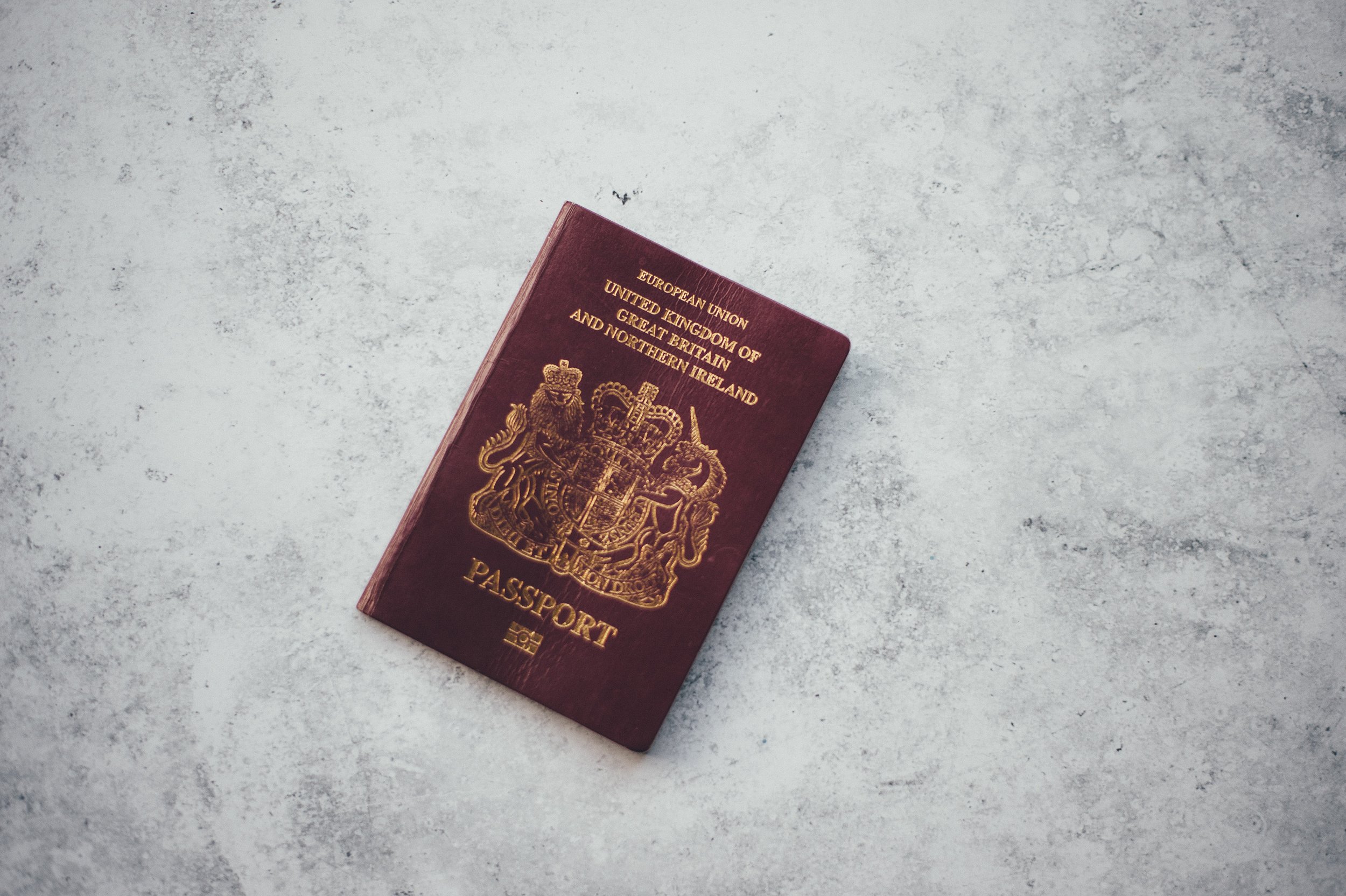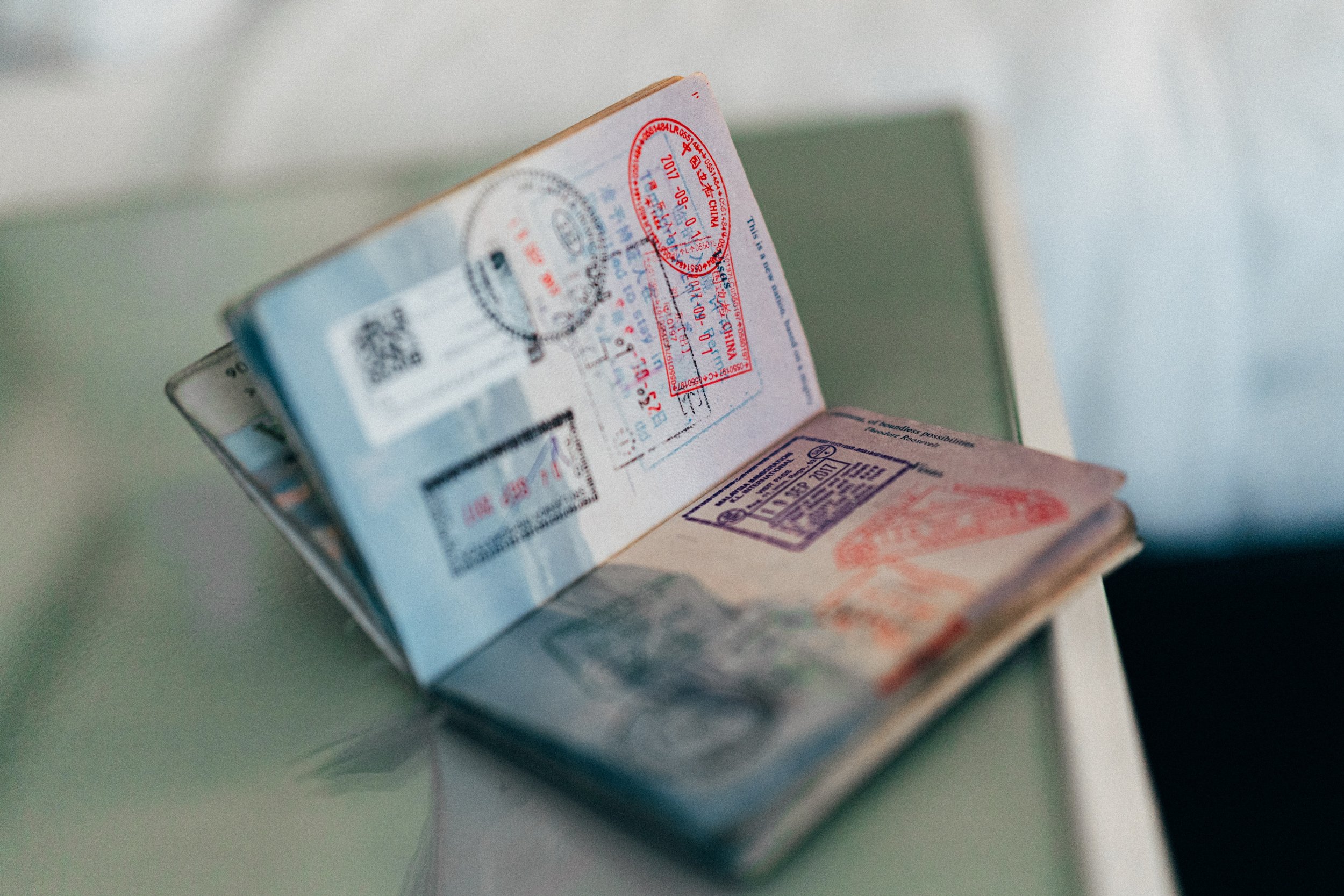U.K. Traveller - Is your Passport Valid in Europe?
Disclaimer: This article has been written based on my own research. Whilst I hope you find it helpful, it is your responsibility to double-check with your travel agent, cruise lines, airline and government sources if you are in any doubt. I have provided links to many of these at the end of the post.
Travelling to Europe? Have you checked your passport?
New British Passport alongside British/EU Passport
I ask this rather obvious question in the midst of a confusing, frustrating and emotional-rollercoaster attempt to book a last minute cruise. I consider myself an experienced traveller, and I keep up to date with the latest travel news, but even I found it difficult navigating the updated passport regulations when trying to determine the validity of my husband’s passport for our chosen cruise. This was compounded by the fact that I received conflicting advice from various industry sources. Therefore I decided to put together a quick guide to help anyone in a similar position. So if you still have one of the burgundy EU/UK Passports this article is for you.
Pre-Brexit Passport Rules
In the past, it was quite straightforward to check if your British/EU 10 year passport was valid - check the expiry date and voila, if it was still in date on your intended return you were good to go. Some countries might have required you to have six months remaining until expiry, but they were primarily non-European countries and it was made clear when booking.
However things have become somewhat more complicated since those halcyon days, and whatever your political view, it cannot be denied that this is entirely down to the UK’s exit from the European Union.
It was generally accepted that to travel to Europe you required a valid 10 year passport as discussed above. Your passport may even have been valid for longer, as prior to September 2018, if you renewed your passport early, the U.K. Passport Office had a policy of crediting the passport holder with the unused portion up to 9 months. When travelling, it was the expiry date that was important, whether that was ten years or ten years plus any extension. The relevance of this fact will become apparent as you read on.
This policy was revoked when the Government realised that it would be a problem once we exited the European Union, and passports issued after September 2018 were for 10 years maximum, although previously extended passports were still valid.
As long as your passport was still in date, even on the day of expiry, it was still a valid travel document.
Post-Brexit Passport Rules
EU Passport Control Sign
Firstly, it is important to point out that these rules aren’t new, or created specifically to make things difficult for UK travellers to Europe. In fact, the rules were decided upon whilst the UK was still part of the EU and were applicable to any non-EU Country, referred to as third-Countries. The UK Government was perfectly aware of the implications for British passport holders upon leaving the European Union, even if we weren’t..
British passport holders are now considered “third-country nationals“ and have to adhere to the requirements of the Schengen Area including passport issue and expiry dates, as well as length of stay.
What is The Schengen Area?
The Schengen Area, named after the 1985 Schengen Agreement and the 1990 Schengen Convention both signed in Schengen in Luxembourg, comprises 26 European countries which have abolished border controls including passports and visas for member countries on mutual borders - affording members the much-valued ‘freedom of movement’.
Current Schengen Member Countries:
Map of Schengen Area (Blue = Schengen Area Countries Yellow - Member countries) Committed to joining Image: Rob984
Belgium, Czech Republic, Denmark, Germany, Estonia, Greece, Spain, France, Italy, Latvia, Lithuania, Luxembourg, Hungary, Malta, Netherlands, Austria, Poland, Portugal, Slovenia, Slovakia, Finland and Sweden, along with Iceland, Liechtenstein, Norway and Switzerland.
What are the rules now for UK Travellers to Europe?
For travel to any of the afore-mentioned European countries the rules are explicit on the EU’s ‘Your Travel’ pages:
Travel documents for non-EU nationals
If you are a non-EU national wishing to visit or travel within the EU, you will need a passport:
valid for at least 3 months after the date you intend to leave the EU country you are visiting,
which was issued within the previous 10 years”
Two very important facts to note here:
Firstly, you must have 3 months of your 10 year passport remaining after your intended return;
Secondly, that the 10 years count from the ISSUE date rather than the EXPIRY date - so referring back to my earlier comments about extended passports issued prior to September 2018, this is a significant consideration as regardless of the expiry date shown on your passport, it is only valid if it was issued less than ten years ago.
I will use the example of my husband’s passport to illustrate:
His passport was issued at the end of January 2013 with a 5 month extension giving an expiry date shown on his passport of end of June 2023 - 10 years and 5 months. Under the new rules, for the purpose of travelling in Europe, his passport expires at end of January 2023 (even though the expiry date shown on the passport is June 2023). So If he wanted to travel to Europe at any point from the 31st October 2022, his passport would be deemed invalid as there would be less than 3 months remaining in the relevant 10 year period.
What if I Still Have an EU Passport?
Ironically the changes will really ONLY affect the burgundy-coloured ‘EU’ Passport as if you have a new British passport issued post-2020 it will obviously meet the 10 year requirement and have at least 8 years remaining (at time of writing 2022).
Does this Apply Worldwide?
No. It would appear that countries outside Europe are concerned only with the EXPIRY date rather than when the passport was issued. The required period remaining is subject to local policy so you would need to check the relevant pages on the government website as you may find some require 6 months rather than 3.
What about Children’s Passports?
Children’s passports (Under 16) are usually issued for five years and therefore will fall within the required 10 year rule. However it is advisable to check that the expiry date meets the three months rule.
How Long Can I Stay in Europe?
Under the Schengen Rules, British Passport holders are permitted to stay for 90 days in any 180 period (so even if you have shorter trips, it is cumulative). It is quite a complicated calculation and I suggest you check out the advice on GOV.UK
What are the Passport rules for European Cruises?
Burgundy British/EU Passport
I’m glad you asked that, as this is where I came in!
Each cruise line has their own policy which is usually found under FAQs; but they should mirror the local European regulations. However, my personal journey of discovery began because of conflicting advice I received when trying to book a Virgin Voyages cruise. My travel agent’s Virgin Store contact initially told her there was a 6 month validity rule prior to return, but then emailed to say it was actually 3 months. I decided to check the booking T&Cs and discovered it did indeed say 6 months I brought this to the attention of a senior executive at Virgin Voyages who agreed that this was an anomaly and stated that their requirements should be aligned to local regulations in the countries they are sailing from/to. I was told that this would be communicated to those concerned.
I have explored the travel document requirements of major cruise lines and reached out for clarification for UK travellers to Europe to see if they differed.
An online spokesperson for P&O Cruises responded:
“P&O Cruises guests can board and travel to EU countries if their passport was issued less than 10 years before the day of embarkation and still has at least three months left before the date of expiry of the passport, as at the date of disembarkation (regardless of whether or not the passport has an extension period).
For cruises that travel outside the EU and in line with the requirements of many of these countries, guests are required to have six months validity left on their passports.“
Virgin Voyages stated:
“Our information should always align to the local authorities” and hopefully will be updating their website to reflect this.
My advice to you would be to check the cruise line’s requirements plus those of the countries you will visit on your itinerary. Additionally, if it is a fly cruise, you would be wise to check the airlines rules also. Some airlines (BA for example) just direct you to the Government website.
Below you will find links to some useful pages, and hope that this makes it easier for you to navigate the passport minefield.
Resources
Open passport showing passport stamps.
Gov.uk -Passport Rules for Europe
Airlines Regulations
Cruise Line Regulations
Country Advice
(currently all adhering to Schengen Area Rules - here are some of the most popular European destinations):
Italy - Including Sardinia
Portugal - Including Madeira
Spain - Including Balearics and Canary Islands
Check you passport now!
In summary, before you book your next European trip - whether by land or sea:
Check the ISSUE date - is it within the last ten years?
Check the EXPIRY date:
are there at least 3 months remaining after your proposed return date (within the 10 year period - ignore any extension)?
Check the regulations for each country to be visited (links from Gov.UK
Check Cruise Line/Airline Travel Document Requirements
If you are booking far enough ahead leave plenty of time to renew your passport as it can take up to ten weeks to be processed at the time of writing.
BON VOYAGE!






